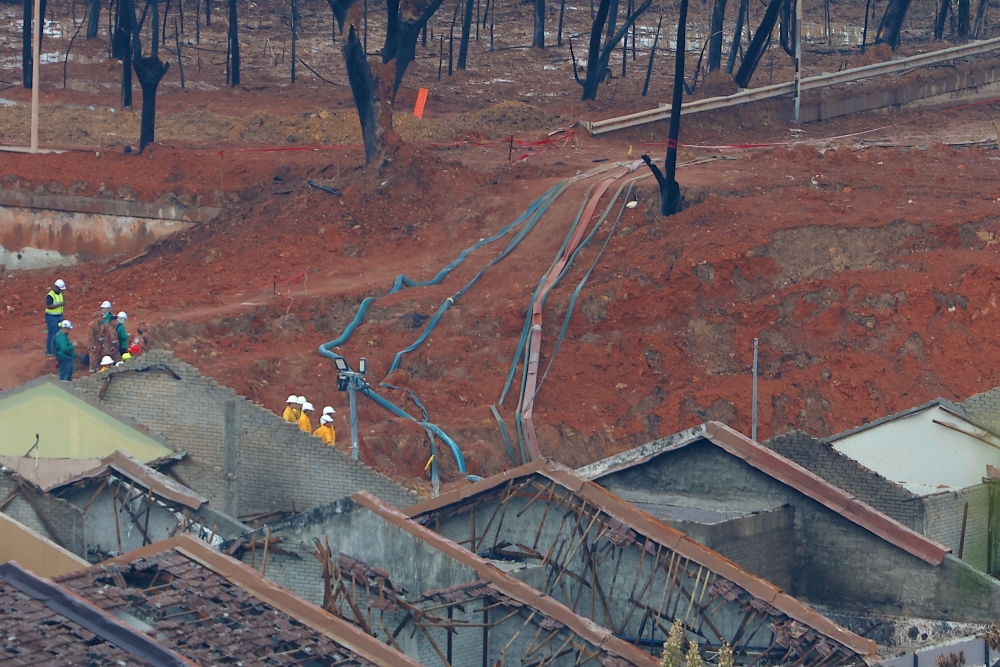Citing improved policy credibility and reduced near-term risks to macroeconomic stability, Fitch Ratings has upgraded Nigeria’s credit rating from B- to B. “The upgrade reflects increased confidence in the government’s broad commitment to policy reforms implemented since its shift to orthodox economic policies in June 2023, including exchange rate liberalisation, monetary policy tightening, steps to end deficit monetisation, and the removal of fuel subsidies. “These have improved policy coherence and credibility, reduced economic distortions, and mitigated near-term risks to macroeconomic stability, enhancing resilience in the context of persistent domestic challenges and heightened external risks,” Fitch said in a statement on Friday.
The rating agency had in May raised its credit outlook for Nigeria to “positive” from “stable,” citing government efforts to restore economic stability while maintaining its long-term foreign currency debt rating at B-. Single B ratings are considered below investment grade and highly speculative. According to the statement, the stable outlook reflects Fitch’s expectation that the current macroeconomic policy stance will support a move toward lower inflation and sustain improvements in the foreign exchange (FX) market’s operations, although inflation is expected to remain much higher than among rating peers.

The agency further stated: “We anticipate a continued reduction in external vulnerabilities through further easing of domestic foreign currency supply constraints, while renewed energy sector reforms should help sustain current account surpluses.” Fitch noted that greater formalisation of FX activity including the Central Bank of Nigeria’s (CBN) recent introduction of an electronic FX matching platform and a new FX code to enhance transparency and efficiency alongside monetary tightening, has led to increased FX liquidity and general stability in the FX market after a 40% depreciation in 2024. This has helped narrow the gap between official and parallel exchange rates.
“Net official FX inflows through the CBN and autonomous sources rose by about 89% in Q4 2024, compared to an 8% rise in Q4 2023. We expect continued formalisation of FX activity to support the exchange rate, although we anticipate modest depreciation in the short term.” According to Fitch, the CBN has tightened monetary conditions through a combination of policy rate hikes to 27.
5% (up 875 basis points since February 2024) and the use of prudential and operational tools such as open market operations at rates closely aligned with the Monetary Policy Rate (MPR) to strengthen policy transmission after years of financial repression. The rating agency projected that Nigeria’s inflation will average 22% in 2025 (compared to the ‘B’ median of 4.3%) and 20% in 2026.
It warned that premature easing of monetary policy would undermine the positive effects of the recent adjustments, given the persistently high inflation. Fitch explained that the medium-term outlook for the rating is supported by Nigeria’s external reserves, which have rebounded significantly following recent policy reforms although challenges remain. It noted that gross official reserves reached $41 billion by the end of 2024, up from a low of $32 billion in mid-2024, but later declined to $38 billion due to increased debt service payments.
Fitch projected that Nigeria’s current account surplus, estimated at 6.6% of Gross Domestic Product (GDP) in 2024, will average 3.3% of GDP in 2025–2026.
“There is a lack of detail on the composition of reserves amid recent indications by the Central Bank that place net reserves at $23 billion at end-2024, up from about $4 billion at end-2023. “Nonetheless, we estimate that roughly 14% of gross reserves comprise FX swaps with local banks down from 25% in our November 2024 assessment amid increased efforts by the CBN to reduce FX liabilities,” the agency said. Fitch also reported that Nigeria’s oil refining sector is poised for a boost in 2025, as the Dangote Refinery scales up operations to reach a capacity of 0.
65 million barrels per day (bpd) by the end of Q2, from the current 0.55 million bpd. “We expect crude oil production (excluding condensates) to increase in 2025–2026, averaging 1.
43 million bpd, from 1.34 million bpd in 2024 helped by improved onshore surveillance and increased investment by local oil companies. However, underinvestment and production outages persist, constraining output below 2019 levels,” Fitch said.
The agency also predicted that the impact of U.S. tariffs on Nigeria’s trade position will be limited, given the exclusion of oil-related exports which accounted for about 92% of total exports (nearly 2% of GDP) to the U.
S. in 2023. “Lower oil prices pose a bigger risk, as they would weaken external buffers and fiscal metrics and test the new policy framework,” the agency warned.
However, it concluded that greater policy flexibility would enhance Nigeria’s ability to respond effectively to potential shocks..
Top

Fitch Upgrades Nigeria’s Credit Rating To B

ShareCiting improved policy credibility and reduced near-term risks to macroeconomic stability, Fitch Ratings has upgraded Nigeria’s credit rating from B- to B. “The upgrade reflects increased confidence in the government’s broad commitment to policy reforms implemented since its shift to orthodox economic policies in June 2023, including exchange rate liberalisation, monetary policy tightening, steps to...The post Fitch Upgrades Nigeria’s Credit Rating To B appeared first on New Telegraph.











